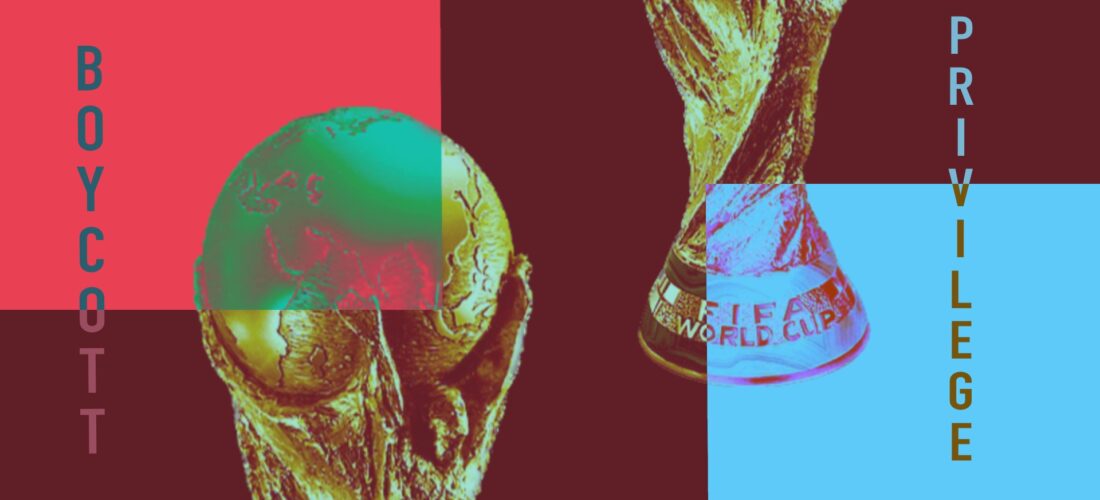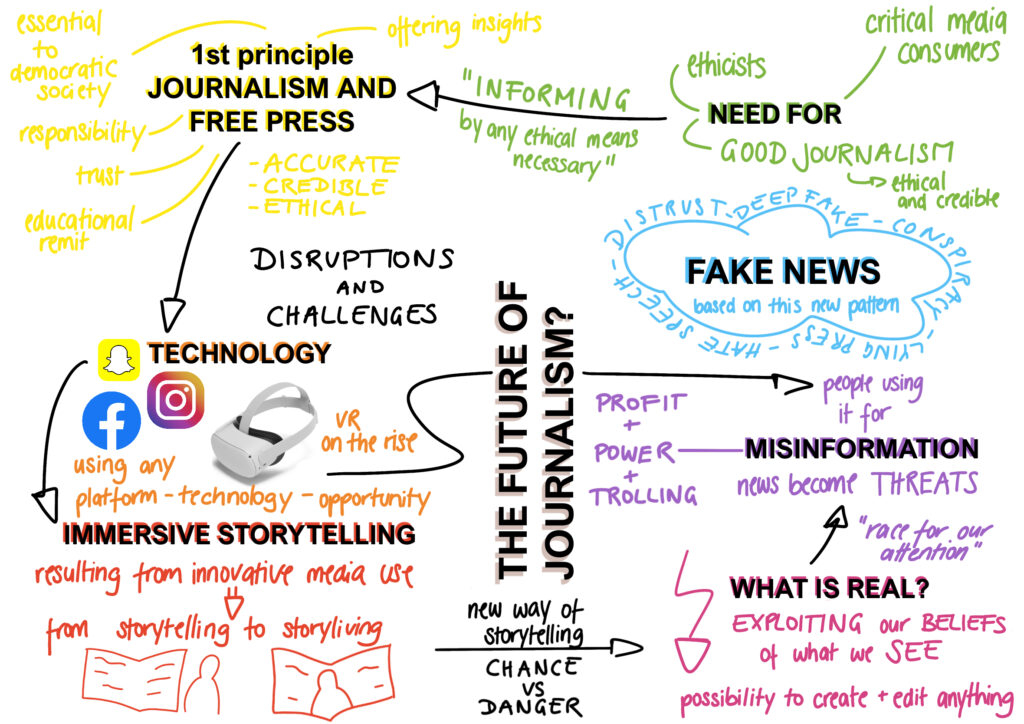Career jump against human rights?
two young sports journalists caught between the chance of a lifetime and an inhuman regime
A lifelong dream, a milestone and, above all, a great opportunity. The first time to breathe the air of the World Cup behind the scenes. For Michel Egenolf (21) and Claas Schönfeld (20), this dream is now coming true. The two young sports journalists from Munich are currently in the thick of things, commentating on World Cup matches for the first time. “I’ve been fascinated by this world from a young age, and it was clear to me that I wanted to participate,” says Michel. And now the time has come: for about a year the two have been commentating, up to games at the highest level of the sport. “This is the highest level in soccer ever. A World Cup is an event that can’t be compared to anything else,” says Claas. So actually everything could be perfect. If it wasn’t the World Cup in Qatar
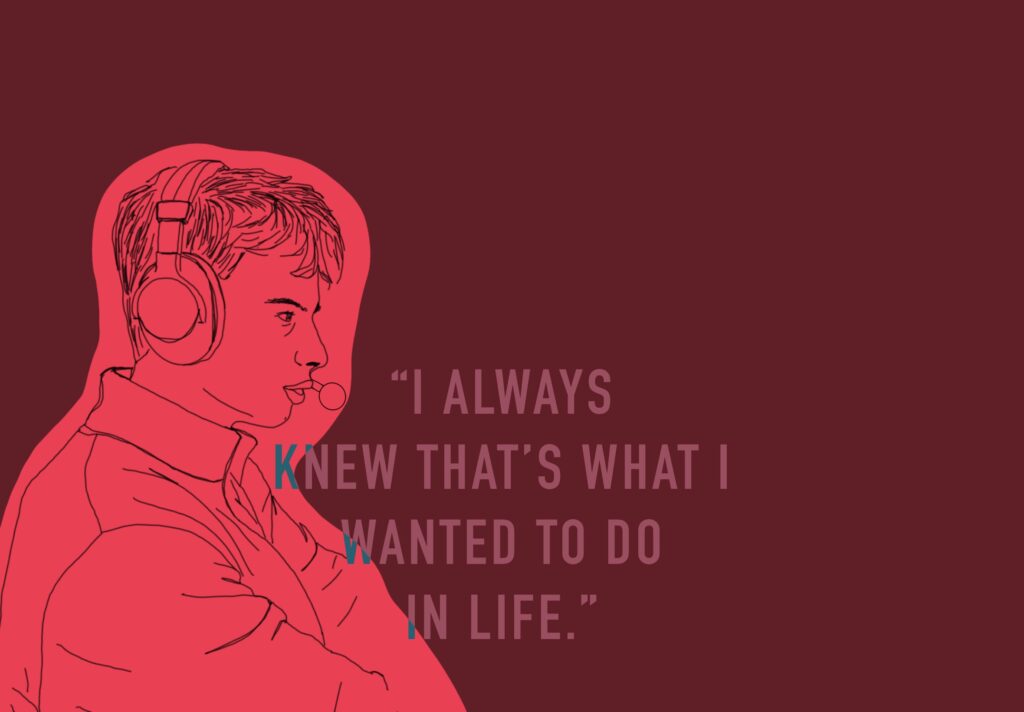
Decided in 2010, then 12 years of silence. Until 2022, when there suddenly seems to be no other topic. The World Cup in Qatar: The World Cup of human rights abuses, the “World Cup of Shame”? (German Public Broadcasting) Fact is, Qatar is a desert state. The stadiums were built under the worst working conditions, the death toll of the migrant workers is thought to be several thousands. Qatar, an Arab country where women barely experience self-determination let alone equality. Qatar, where homosexuality and queerness are considered “psychological harm” and freedom of expression is trampled. Qatar, the scene of one of the greatest sporting events ever. Hosted by FIFA, one of the most successful and powerful organizations in the world.
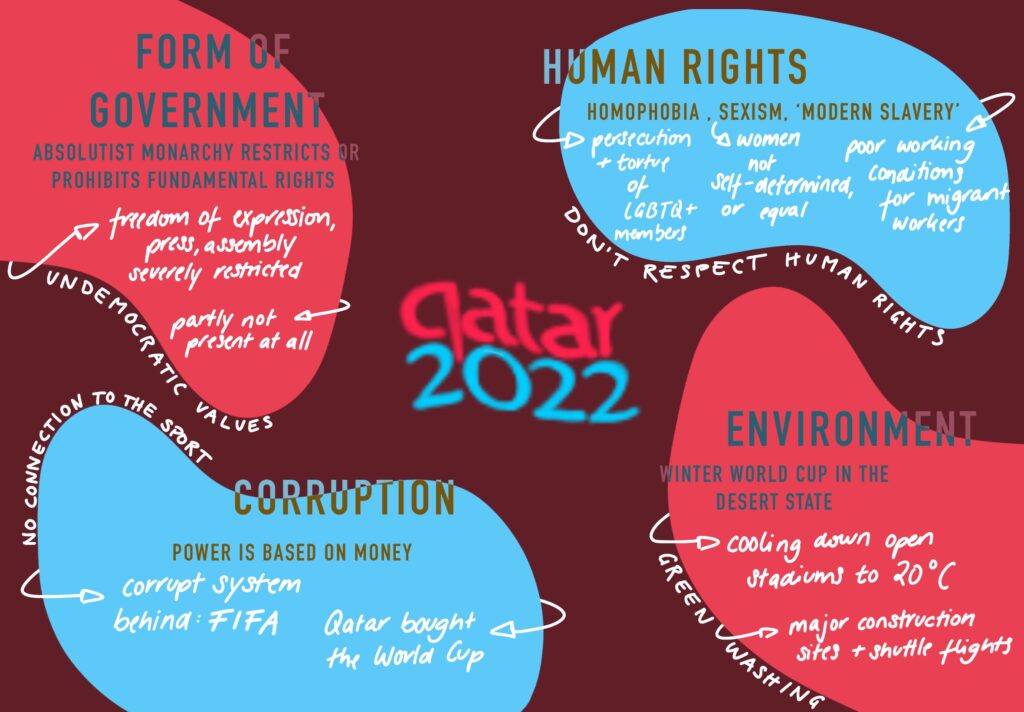
The logical consequence: boycott. This is linked to the hope that FIFA will have to act if no one watches their event. One must send a signal, build pressure. Decisions cannot be made on the basis of money. That a point of corruption and illegal machinations has now been reached at which one can no longer look the other way, or in this case continue to watch.
Anticipation should prevail, but the whole debate does not pass by Claas and Michel either. Although both say it was never really an option for them not to do it, the doubts are still there. “You really don’t feel good about it,” Michel says. “But when you’re in it professionally, you’re just affected in a whole different way. Of course, this is a huge opportunity for us.” Boycotting is easy if you are able to do it.
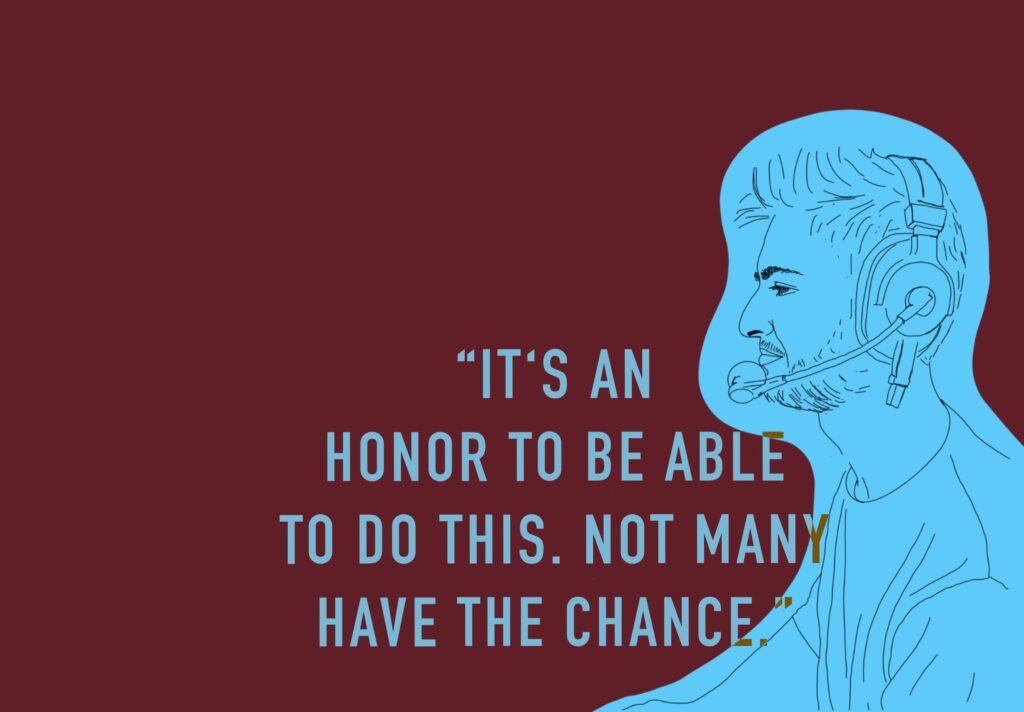
“It’s easier when you’re not committed and don’t have a passion for it.” Claas continues,” There is a perception that there is so much money in the industry that no one has financial problems. But that’s wrong.” He explains that there are just as many people who can’t even choose to boycott the World Cup if they want to keep their job, thereby securing their livelihood.
Still, we are at the point where we can finally say whether the debate of the last few months has triggered anything. It has. According to ZDF, the ratings for a Germany match have not been below 20 million since 2010. Last Tuesdy the numbers didn’t even reach the 10 million mark.
Young people are also distancing themselves, with effect. A survey I conducted against this backdrop showed that only a third of them still said they would watch the games. 71%, on the other hand, say they are part of the boycott. There are many reasons for this. At the top, however, clearly is Qatar’s violation of human rights. Within the survey I heard statements like “I don’t want to support the FIFA and their corrupt system that throws all values overboard for a little bit of money.” Another says: “I don’t agree with Qatar’s transmission of values, especially about women and homosexuals.” But one point also clearly plays a role: again and again I read that people are generally not fans of the sport. “I don’t watch the World Cup in Qatar because I’m not interested anyway,” versus “I watch the World Cup in Qatar because I love the sport,” “because it’s soccer”. In the end, the privilege to boycott is simply related to the subject matter. Sure, it’s easy when you simply have nothing to do with the sport. Of course, it then is much easier to dissociate from everything, to condemn others when they watch the games. But it’s still an event that millions of people look forward to for four years.
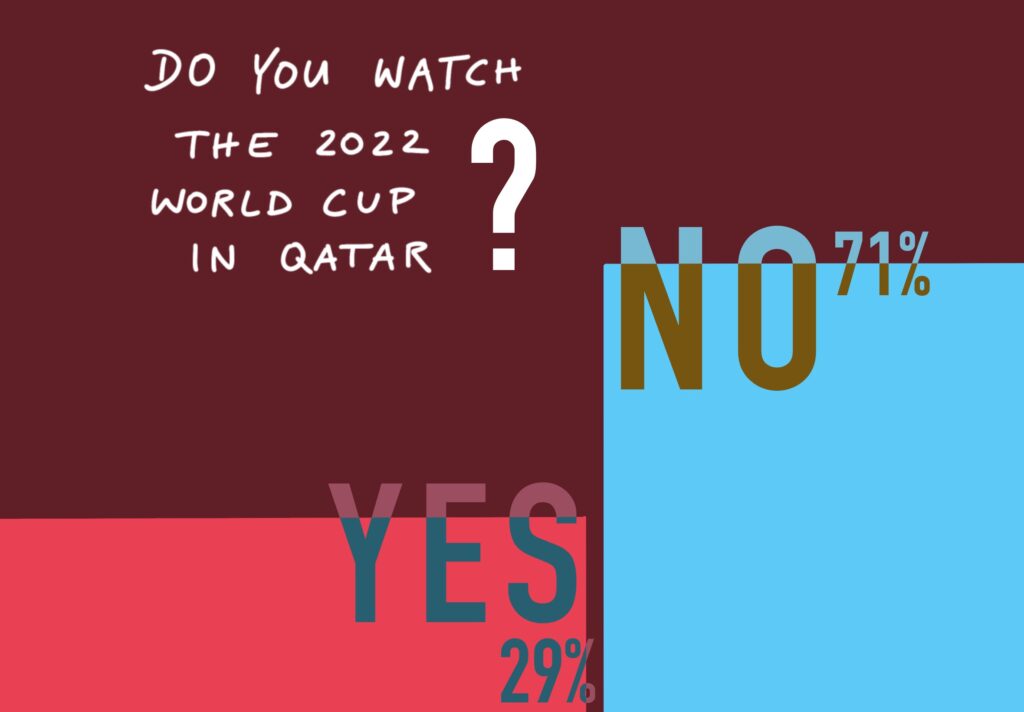
Niklas Zink (19) is one of them. Soccer is his great passion. For as long as he can remember, the sport has been an integral part of the FC Bayern fan club member’s life. Of course, for him too, the World Cup is an event to look forward to for four years. A real highlight in the life of a fan. And yet this year he decides against it. “It is completely wrong to hold a World Cup in such a country.” Thus, the highlight status of a World Cup simply cannot be reconciled with what is happening in Qatar at the moment. “It’s not what you normally think of as a World Cup. I am absolutely against it”.
Michel and Claas, however, will take advantage of this opportunity. For themselves and their still young career, but also to act within this situation. Claas: “We want to use our platform. We have a few thousand people listening to us, including some who aren’t aware of the situation. With our work, we hope to reach them as well.” They use their outreach to create awareness. They don’t want to keep quiet about what’s happening in and around Qatar. “Simply boycotting won’t do any good now. We need to take active action and not just look the other way.”, Michel adds. He and Claas will watch, will comment. The opportunity is too great, perhaps unique. Everything could be perfect. If it wasn’t the World Cup in Qatar

